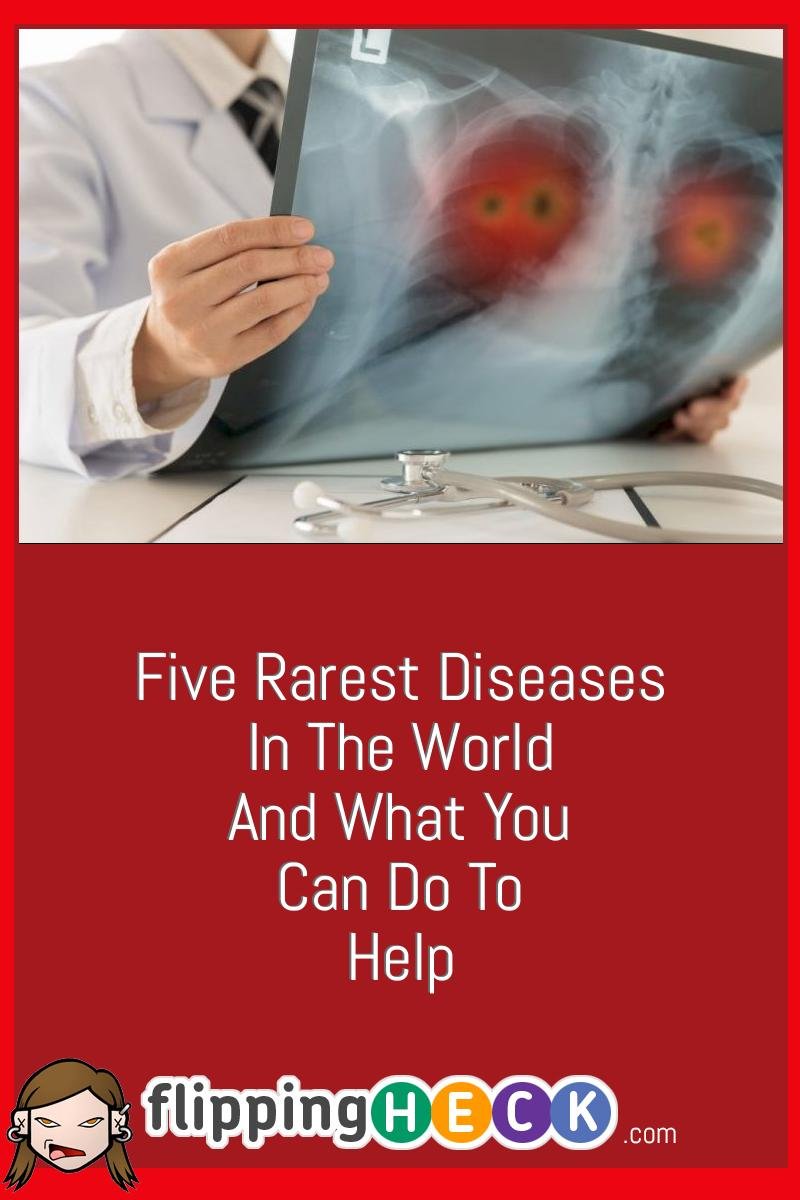Five Rarest Diseases In The World And What You Can Do To Help
Diseases are something common to all human beings, but there are some diseases that only a few people in the world have. Here are some of them.

Diseases are one of the leading causes of death worldwide. According to the World Health Organization (WHO), diseases such as cancer, heart disease, and stroke are responsible for nearly two-thirds of deaths each year. These diseases are common, affecting millions of people. However, some conditions are very rare and only involve thousands, if not hundreds of people. Here are some of the rarest diseases in the world.
Stoneman Syndrome
Stoneman syndrome or fibrodysplasia ossificans progressiva (FOP) is a congenital disorder that causes the body’s connective tissues to turn into bones. When the body tissues turn into bones, it can limit the range of motion and cause deformities. The syndrome is caused by a mutation in the gene that controls bone growth.
People who live with Stoneman syndrome can have an average life expectancy. However, the quality of life is often poor due to deformities and limitations in mobility. The most severe case of this syndrome is when the person develops a new skeleton. When this happens, the mobility of the person gets reduced drastically. Surgically removing the skeleton would only stimulate more bone growth.
The syndrome is only known to affect one in two million people, and only 700 cases have been reported worldwide. However, there is no cure for this disease, and it can be fatal.
Hutchinson-Gilford Progeria Syndrome
Hutchinson-Gilford progeria syndrome (HGPS) is a rare, fatal genetic disorder that causes accelerated aging in children. Children with this disorder appear normal at birth. However, by the age of two, they begin to show signs of premature aging, such as hair loss and wrinkles. They also have small heads and bodies.
HGPS is caused by a mutation in the gene that produces lamin A, a protein that helps keep cells healthy. This mutation has an abnormal form of lamin A, which causes cell death and premature aging. There is no cure for HGPS, and it is fatal. Children with this disorder typically live to be about 13 years old.
A movie was made after this disease, titled the “The Curious Case of Benjamin Button.” Some people call it the Benjamin Button disease. It’s a very rare disease, with only one in eight million children that can be affected.

Cotard’s Syndrome
Cotard’s syndrome is a rare mental disorder that causes people to believe that they are dead or do not exist. People with this condition may also think their internal organs are missing or rotting. Cotard’s syndrome is often associated with depression and other mental disorders.
The cause of Cotard’s syndrome is unknown. However, it is believed to be caused by psychological and neurological factors.
This disease was named after Jules Cotard who first described the condition in 1880. Cotard’s syndrome is extremely rare, and only a few hundred cases have been reported worldwide. Unfortunately, there is no cure for this disease, and psychotherapy only works to a certain extent.
Chronic Focal Encephalitis
Chronic focal encephalitis (CFE) is a rare neurological disorder that causes brain inflammation. The cause of CFE is unknown. However, it is believed to be caused by an autoimmune reaction.
CFE typically affects children and young adults. The symptoms of this disease include seizures, headaches, and cognitive problems. The condition can also cause personality changes and psychiatric issues.
CFE is a rare disease, and only a few hundred cases have been reported worldwide. There is no cure for this disease, and treatment focuses on managing the symptoms.
Neuromyelitis Optica Spectrum Disorder (NMOSD)
Neuromyelitis Optica spectrum disorder (NMOSD) is a rare neurological disorder that affects the optic nerve and spinal cord. The cause of NMOSD is unknown. However, it is believed to be caused by an autoimmune reaction.
NMOSD typically affects adults. The symptoms of this disease include blindness, paralysis, and muscle weakness. The condition can also cause cognitive problems.
NMOSD is a rare disease, and only a few hundred cases have been reported worldwide. There is no cure for this disease, and treatment focuses on managing the symptoms.
What Can You Do To Help?
People with these diseases have to live their lives knowing that there is no cure. Although there are only a few of them, their lives are still essential to the overall wellness of the world. There are many ways you can help.
Donations
Donations are a great way to help fund research for these diseases. Many charities also exist to help people with these conditions. You can also raise awareness about these diseases by sharing them with others. For example, you can donate to the National Cancer Institute if you want to further the studies regarding ATLL.
Volunteering
Studies are done every day regarding the nature of these diseases. There are study opportunities for both patients and caregivers alike. Researchers often need people to help with data collection, patient recruitment, and other tasks. Check with your local hospitals or universities to see if there are any current studies you can participate in.
Advocacy
Advocating for more research on these diseases is a great way to help. You can contact your legislators and urge them to support funding for research. You can also join support groups for people with these conditions and their families. This is a great way to offer emotional support and connect with others who understand what you’re going through.”
These neurological diseases are all extremely rare and affect a small number of people worldwide. However, their impact is still significant. Although there is no cure for these conditions, donations, volunteering, and advocacy can help to improve the quality of life for those who suffer from them.

